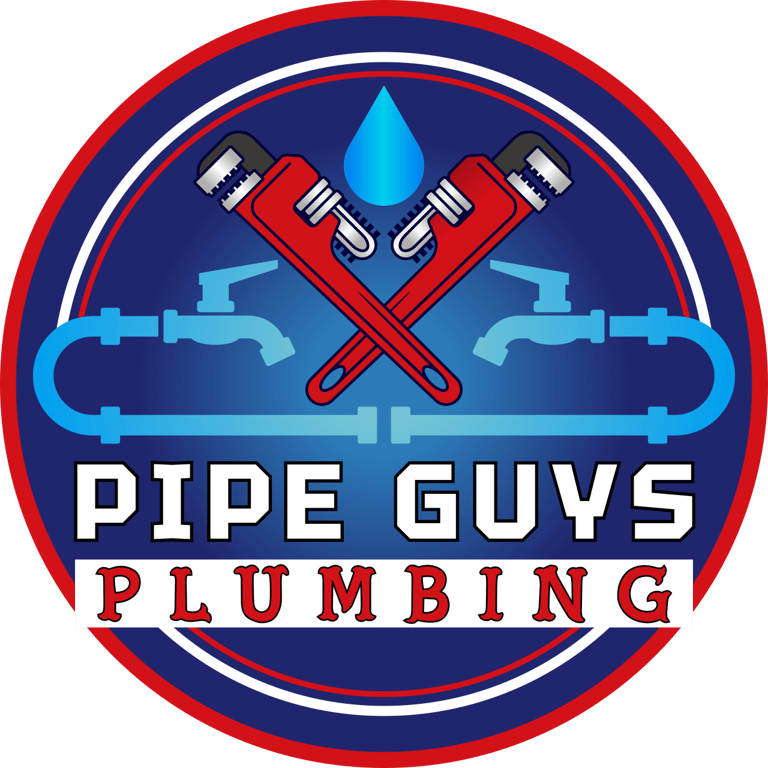Fast response. Fair rates. Flexible solutions.
10 Essential Plumbing Maintenance Tips Every Homeowner Should Know
11/11/20252 min read


Understanding the Importance of Plumbing Maintenance
Proper plumbing maintenance is crucial for every homeowner. Neglecting your plumbing system can lead to costly repairs and significant inconveniences. With a few preventative measures, you can ensure that your plumbing operates smoothly and efficiently. Here are ten essential plumbing maintenance tips that every homeowner should keep in mind.
1. Regularly Check for Leaks
One of the most important plumbing maintenance tasks is to regularly inspect your home for leaks. Check under sinks, around toilets, and along pipes for any signs of moisture. Even small leaks can lead to significant water damage over time, so it’s important to address them promptly.
2. Clean Your Drains
Keeping your drains clean is essential to prevent clogs that can lead to backups. Make it a habit to flush your drains with hot water regularly. Additionally, consider using a mixture of baking soda and vinegar to help keep them clear. Avoid putting grease or large food particles down the drain to minimize build-up.
3. Insulate Pipes
In colder months, it is essential to insulate your pipes to prevent them from freezing. Frozen pipes can burst and cause significant damage. Use foam insulation sleeves on exposed pipes in unheated areas, such as basements and garages, or outdoors, to protect them from freezing temperatures.
4. Test Your Water Pressure
High water pressure can stress your plumbing system and lead to leaks and pipe damage. It’s a good idea to test your water pressure regularly, ideally with a pressure gauge. The ideal pressure range is between 40 and 60 psi. If your pressure is too high, consider installing a pressure-reducing valve.
5. Know Your Main Water Shut-Off Valve
In the event of a plumbing emergency, knowing how to quickly shut off your main water valve can minimize damage. Familiarize yourself with its location and ensure that everyone in your household knows how to operate it. This can be critical in preventing flooding and water waste during emergencies.
6. Schedule Regular Professional Inspections
While regular DIY maintenance is essential, scheduling professional plumbing inspections can catch problems before they escalate. An expert can identify wear and tear on pipes and fixtures, ensuring your plumbing remains in good health. Consider having an inspection at least once every two years.
7. Monitor Your Water Heater
Preventative maintenance on your water heater can extend its lifespan. Regularly check for signs of rust or leaks around the unit. Flushing the tank annually helps remove sediment build-up, improving efficiency and prolonging its life. Be sure to also check the temperature setting: it should be set to around 120 degrees Fahrenheit for optimal performance.
8. Avoid Chemical Drain Cleaners
While it may be tempting to pour chemical drain cleaners down clogged drains, they can be harmful to your plumbing. These products can damage pipes over time and should be avoided in favor of natural solutions or professional assistance. Use plungers or a plumbing snake to resolve clogs instead.
9. Keep an Eye on Your Toilet
Toilets can be a source of hidden leaks. Ensure that your toilet is functioning properly by checking for running water or other signs of leaks. If your toilet is running, consider replacing the flapper or adjusting the float to prevent water waste.
10. Educate Your Family
Finally, educating everyone in your home about proper plumbing practices can go a long way. Ensure they understand what can and cannot be flushed down the toilet, how to avoid sink clogs, and the importance of reporting leaks or plumbing issues as soon as they arise. Good habits can lead to a healthier plumbing system and save you money in the long run.
Services
Reliable plumbing solutions for your home today.
Find us on Google Maps HERE
Contact
Quote
contact@pipeguysplumbing.com
© 2025. All rights reserved.
